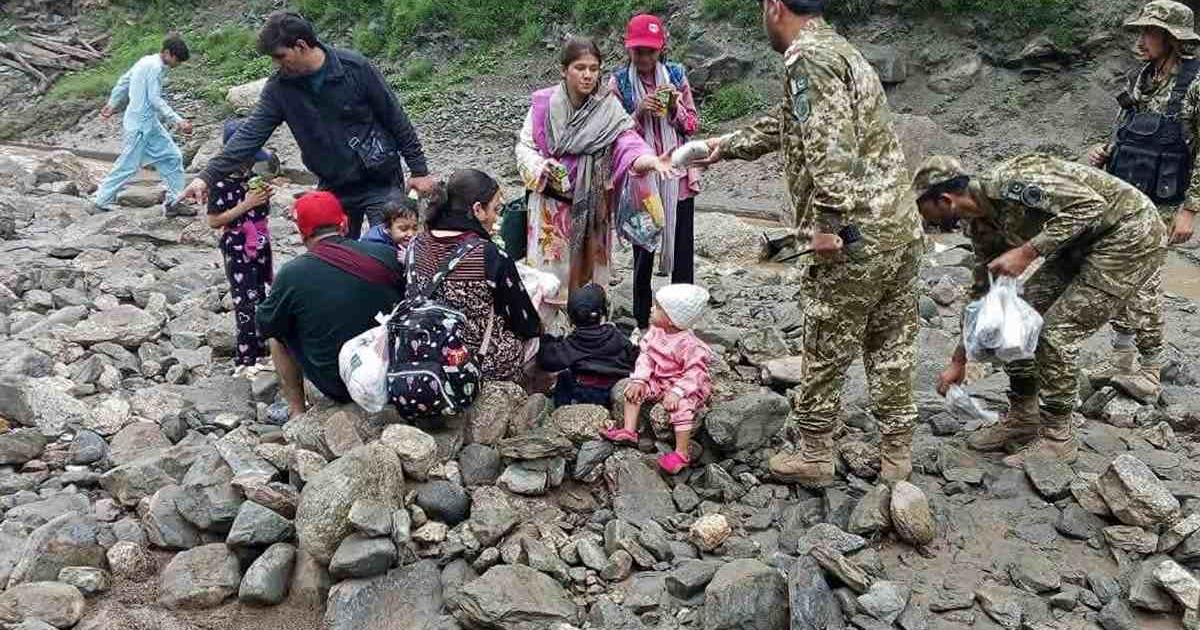Pakistan Prime Minister Shahbaz Sharif has instructed the officials concerned to take immediate steps to prevent infectious diseases in rain and flood areas recently.
He directed in a statement on Wednesday evening that rescue operations should be further enhanced in areas affected by rain and floods across the country.
Since 26 June, various regions of Pakistan have been raining and raining. According to data from National Disaster Disaster Agency, NDMA, 116 children have been killed and more than 600 have been injured in floods.
According to the International Federation of Red Cross and Red Crescent, 845 houses across Pakistan will be partially or completely destroyed, affecting more than 5,000 people.
https://www.youtube.com/watch?v=fo9mwapvjdujdu
He directed the closed highways, especially Karkoram and Narn, Babusus, Chellas highway due to slipping of land and told Chief Secretary Gilgit -Baltistan, “Passengers who are trapped due to the closure of the highways should be provided with all possible facilities.”
This section includes relevant reference points (related nodes fields)
According to a statement by the Meteorological Department, urban floods in Rawalpindi, Lahore and Gujranwala divisions on Thursday are in danger, while the mountains of Dera Ghazi Khan may also be flooded.
In addition, the lower and medium floods will remain in many places in three major rivers Sindh, Jhelum and Chenabs.
Recent rains and floods have not yet been reported that outbreaks have been reported in any region, but last month, the World Health Organization (WHO) finalized a project with the Pakistan and the Health Sector Government to deal with such a situation.
The main objectives of the project include coordination and timely emergency reactions, maintaining uninterrupted supply of basic health services in high -rash regions, and strengthening diseases, early warning systems and sharp epidemic reactions.
The project has identified 33 priority districts belonging to Punjab (10), Sindh (10), Balochistan (9), and Khyber Pakhtunkhwa (4).


